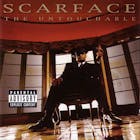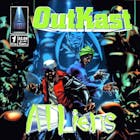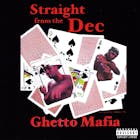The burgeoning rapper/mogul was watching as, after years of labor and hustle, his vision was beginning to bear some serious fruit. Actually, to say it was "beginning" to yield results is misleading: the rapper known as Master P had been making major strides for the better part of three years. Miller had come from the hardscrabble Calliope Projects in New Orlean's notorious Third Ward. The eldest of five, young Percy thought his way out of poverty was to be basketball; as he attended the University of Houston in 1990 on an athletic scholarship. He would only stay there one year, however, before transferring to Merritt College in Oakland to study business. It was while there that Percy's uncle would pass away, leaving the young man an inheritance that P would turn into his own record store. The store soon became homebase for his own record label: No Limit Records.
"When you want something out of life, you always have big dreams about doing all kinds of stuff that the average person probably wouldn't think about doing," P would tell The Washington Post in 1997. "I used to dream about this type of stuff—making movies, getting a number one record—but I ain't never thought it could really come true, even though I always knew I could do it."
Southern rap's independent spirit is well-documented: it's built into the very DNA of the music and the industry that sprang up around it. With no homegrown major labels and only middling interests from the powers-that-be, locals like Memphis, Houston, Miami and New Orleans got their rap bonafides straight out the mud. And with his No Limit Records, Master P came to be the embodiment of that mindset and hustler's spirit.
He'd founded No Limit after opening his record store, launching his career in the early 1990s and seeing regional successes with Richmond-based In A Minute Records releases like Get Away Clean and Mama's Bad Boy. He'd spend those early years building his name opening for Bay Area acts like E-40 and 2Pac. 1994's The Ghetto's Trying To Kill Me saw P take No Limit to SOLAR Records for wider distribution. All the while, as he grew his brand and built his name, he was focused on ownership.
“Owning my own company was important," P explained in an interview with the Los Angeles Times. "Because instead of being signed to a label and maybe at best making 15% of the money, now I make 100%—giving away 15% for distribution if I choose to. See, this way I could sell only 100,000 records and make more money per album than some famous [expletive] who doesn’t own [expletive] and sold 2 million albums.”
By 1995, Priority Records was paying attention to what Master P was doing. He'd relocated No Limit back to his native New Orleans and set to work on his fourth album, 99 Ways To Die. Once Priority saw the kind of leverage P had generated on his own, he landed a major distribution deal. His fifth album Ice Cream Man would become his first platinum-seller in 1996.











